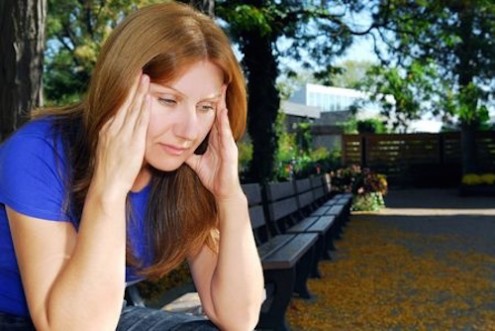Menopause occurs when your ovaries significantly decrease in the amount of estrogen production, the hormone that controls the reproductive cycle.
You may already be familiar with the common symptoms associated with menopause like hot flashes, weight gain, and insomnia. However, the mental and emotional symptoms of anxiety, depression, and mood swings can be equally disturbing.
How is menopause and depression linked?
Diana Bitner, MD shares the correlation between depression and menopause.
Depression in Menopause
Who is at risk for menopause depression?
Additional Info
- Segment Number: 3
- Audio File: health_radio/1544ml5c.mp3
- Featured Speaker: Diana Bitner, MD
- Guest Website: Spectrum Health
-
Guest Bio:
 Diana Bitner, MD, is board certified in obstetrics and gynecology and a certified menopause practitioner. She received her medical degree from Wayne State University School of Medicine in Detroit and completed her residency in obstetrics and gynecology at Butterworth Hospital in Grand Rapids, Michigan. She is a member of the Spectrum Health Medical Group.
Diana Bitner, MD, is board certified in obstetrics and gynecology and a certified menopause practitioner. She received her medical degree from Wayne State University School of Medicine in Detroit and completed her residency in obstetrics and gynecology at Butterworth Hospital in Grand Rapids, Michigan. She is a member of the Spectrum Health Medical Group.
Dr. Bitner has special interests in women's wellness and prevention of heart disease, menopause, perimenopause, laparoscopic and robotic pelvic surgery, and pelvic pain. She enjoys helping women through times of health concerns and life phase transitions with an integrated and evidence-based approach. Her professional goal is to help women be as healthy as they want to be. She is also fluent in Portuguese.
Dr. Bitner has a weekly media engagement with WXMI Fox 17 Morning Mix discussing health topics of importance to women. She regularly engages in media and online chats and authors a blog, titled Midlife & Menopause Moments, which can be found on Health Beat, Spectrum Health's e-news website. - Length (mins): 10
- Waiver Received: Yes
- Host: Melanie Cole, MS
Published in
Health Radio
Tagged under
